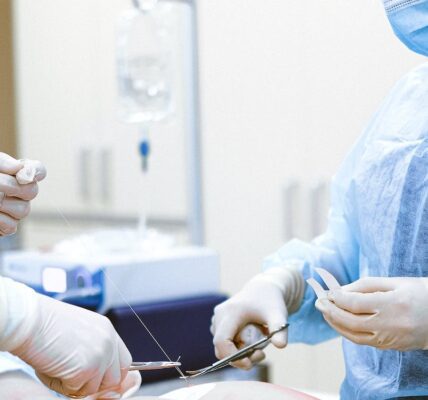Early Physiotherapy Interventions in Critically ill Intensive care patients play a significant role in recovery
To mark the occasion of World Physiotherapy Day on September 8, BGS Gleneagles Global Hospital hosted an event at its premises to raise awareness on the significant role it plays in the recovery of critically ill Intensive care patients. Intensive care unit-acquired muscle weakness is a frequently observed complication of critical illness, occurring in approximately 50% of intensive care patients. Growing evidence exists that early physiotherapy interventions (mobilization and stimulation of activities) in critically ill Intensive care patients may influence or even prevent physical impairments.
Physiotherapists provide treatment for respiratory complications including the application of non-invasive ventilation and exercise and rehabilitation for the prevention and management of intensive care acquired Complications and deconditioning associated with immobility.
Critically ill patients often develop neuromuscular disorders such as Critical Illness Polyneuropathy (CIP) and Critical Illness Myopathy (CIM) called Intensive Care Unit Acquired Complications. Clinically, they manifest as limb and respiratory muscle weakness, leading to delays in mobilization and prolongation of hospitalization.
Babu J., Chief Physiotherapist & HOD, BGS Gleneagles Global Hospital said “With the recognition of the importance of early mobilization of critically ill patients, a clear description of the physiotherapy clinical practice within the intensive care multidisciplinary team is warranted. We are a Quaternary care hospital equipped with a PT team capable of delivering tertiary care physiotherapy that help prevent complications, speed up recovery and discharge of ICU patients. When PT is utilised effectively in the treatment of critically ill patients, sports injuries, trauma cases and acute care, it can activate the patient’s recovery and thereby considerably reduce duration of hospital stay and lessen the physical, mental and financial burden associated with it. Early progressive physiotherapy, with a focus on mobility and walking whilst ventilated, is essential in minimising functional decline”
Interestingly, Physical Rehabilitation is not restricted to post surgery. Physiotherapists agree that Prehabilitation Physiotherapy is more important as it avoids potential complications post-surgery. The process involves being guided through aerobic exercises to help increase general fitness, which can also aid recovery from general anaesthetic, specific strength training that focuses on muscle groups that need to be active and strong during the rehab phase. This makes it easier for the patient to come off ventilator and up to 80 percent of respiratory complications can be avoided.
Physiotherapy team showcased the important role they play in critical care with the successful rehabilitation of a patient who had been on ECMO for 107 days. This is particularly noteworthy as long-term survivors of ECMO-therapy commonly report significant reductions in physical functioning. Neurological physiotherapy is an integral part of neurological rehabilitation wherein restorative, compensatory and preventative interventions focus on reducing impairment and on optimal function enhancement using remaining skills. Similarly, motor relearning program can significantly improve the functions of patients who have experienced a traumatic brain injury or even those with conditions such as Parkinson’s disease, as seen in the case of a 61-year-old patient who consulted the Physiotherapy team at the hospital. She had limited motor functioning because of Parkinson’s and severe Rheumatoid Arthritis. With a consistent rehab initiative, she is now able to walk 3 to 5 kms without trouble.
Biju Nair, Cluster COO, Gleneagles Global Hospitals, Bengaluru added, “Health services provided in acute care hospitals such as ours are typically intensive, of short duration, and specialized. Physical therapists working in acute care hospitals possess a unique set of knowledge and skills that adapt to these characteristics. Our team of physiotherapists treat over 6,000 patients annually. Nearly 45% of these patients are those under critical care. Those with medical conditions or who have been admitted for elective surgeries are another 20% each. Finally, 15% of the patients are those undergoing organ transplants. Therefore, our Physiotherapy team is clearly a cut above the rest and are experienced in critical and acute care and form an integral part of the multi-disciplinary team that treats every patient at our hospital.”
The team is actively involved in Pre-op and Post-op rehabilitation ensuring a higher success rate and quality of life post-surgery in critical cases such as Organ transplantations, Trauma, Brain injuries and Acute care. Physiotherapy is an important intervention that prevents and mitigates the adverse effects of prolonged bed rest and mechanical ventilation during critical illness.






